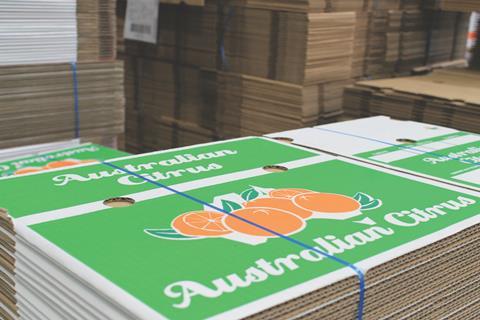Australian industry welcomes new FTA, which is set to provide a boost for citrus exporters

Tariffs on Australian citrus exports to India will be cut in half at the end of 2022 following the finalisation of the Australia India Economic Cooperation and Trade Agreement (AI-ECTA).
Both the Australian and Indian governments have now ratified the agreement, with a planned implementation date of 29 December, 2022, a milestone welcomed by the Australian citrus industry.
“We are delighted to see a great initial outcome for the Australian citrus industry achieved by the Australian government,” said Nathan Hancock, chief executive of peak industry body Citrus Australia.
“In a meeting this week I stressed to trade and tourism minister Don Farrell that the citrus industry was urgently awaiting the finalisation of the agreement so it’s great to hear it has now been finalised.
“Citrus exporters with an interest in India will be ready to take advantage of the new opportunity in the 2023 season.”
This agreement will allow Australian citrus exporters to export oranges and mandarins to India under a tariff-reduced quota system. The current 30 per cent tariff will reduce to 15 per cent once the agreement enters into force. The reduced tariff applies to the first 13,700 tonnes annually.
The quota system will be managed by the Australian government and more details will be provided to industry when available.
Exports of Australian citrus to India have been as high as 7,800 tonnes in the past and Citrus Australia expects to see improvement on that result in the coming years.
Citrus Australia said it will continue to work with the Australian government to seek further reduction in the tariff over coming years.
“A 50 per cent reduction is a step in the right direction, but we feel significant growth in exports will be achieved when the tariff is further reduced or eliminated altogether,” Hancock said.
India is a key focus for Citrus Australia and several exporters. Earlier this year, Citrus Australia was awarded a grant from the Department of Agriculture under the Agriculture Trade and Market Access Cooperation programme to support industry to identify and develop opportunities for Class 1 citrus in India.
Whilst initial investigations showed a number of challenges for industry in increasing exports to India, however, Citrus Australia is confident the market will develop and prove to be an important destination for Australian citrus exports in the future.
The tariff reduction will help drive growth opportunities by making Australian citrus more competitive against other suppliers including South Africa.



